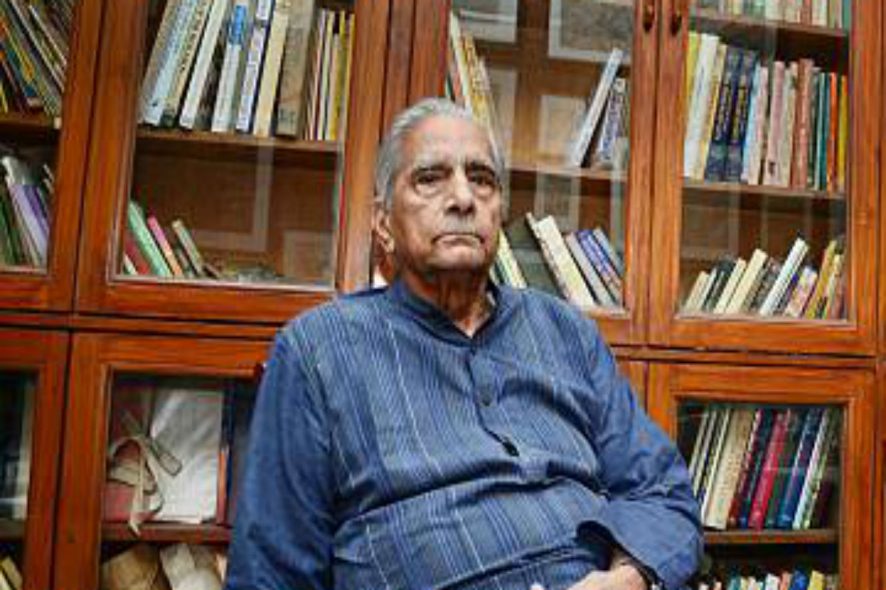Former Law Minister and Senior Advocate Shanti Bhushan has filed a petition before the Supreme Court challenging the power of the Chief Justice of India (CJI) to assign cases to Benches. In his petition, he has said that CJI’s authority as ‘master of roster’ should not be absolute, singular and arbitrary and hence, the allocation of cases to the Benches should not be done by the CJI but by the Collegium. He said:
“the collective opinion of a collegium of senior judges is much safer than the opinion of the Chief Justice alone.”
In the petition in which CJI Dipak Misra has been named as a party, Shanti Bhushan has sought clarification on the administrative authority of the CJI as the master of roster and for the laying down of the procedure and principles to be followed in preparing the roster for allocation of cases. The petition says:
“Master of roster cannot be unguided and unbridled discretionary power, exercised arbitrarily by the Chief Justice of India by hand-picking benches of select Judges or by assigning cases to particular judges.”
The said petition has been filed in the light of the recent crisis that the Indian Judiciary is going through. Below is the timeline of events that led to the filing of this petition:
- A petition is filed by Advocate Kamini Jaiswal alleging that attempts were made to bribe some Supreme Court judges, including CJI Dipak MIsra, in the matters relating to Medical admission scam.
- Bench of J Chelameswar and S. Abdul Nazeer, JJ directs that the matter be heard by the Constitution Bench of the first five Judges of the Supreme Court.
- A 7-judge bench headed by CJI Dipak Misra, recalls the 2-judge Bench order calling for constitution of a Constitution Bench of the first five judges of the Supreme Court. CJI assigns the Medical Scam case filed by Kamini Jaiswal to a 3-judge Bench of 3-judge bench of RK Agrawal, Arun Mishra and AM Khanwilkar, JJ. Sikri and Bhushan, JJ later recused themselves from the matter and the Bench of remaining 5-judge held:
“There can be no doubt that the Chief Justice of India is the first amongst the equals, but definitely, he exercises certain administrative powers.”
- 3-judge Bench dismisses the petition filed by Kamini Jaiswal stating that there was no question of registering any FIR against any sitting Judge of the High Court or of this Court.
- The same 3-judge Bench also dismissed the petition filed by Campaign for Judicial Accountability and Reforms (CJAR), represented by Advocate Prashant Bhushan, and imposed the cost of Rs. 25 lakhs on CJAR stating that the petition aims at scandalizing the highest judicial system of the country without any reasonable basis. The said petition sought SIT inquiry in the Medical Scam Case.
- 4 Senior most judges of the Supreme Court of India, namely, Justice J. Chelameswar, Justice Ranjan Gogoi, Justice Madan B. Lokur and Justice Kurian Jospeh, held a press conference at Justice Chelameswar’s residence to put an end to the speculations making rounds over the differences between the judges and the Chief Justice of India, Justice Dipak Misra, over the assignment of cases. The judges also released a letter addressed to the CJI that read:
“The convention of recognizing the privilege of the Chief Justice to form the roster and assign cases to different members/benches of the Court is a convention devised for a disciplined and efficient transaction of the business of the Court but not a recognition of any superior authority, legal or factual of the Chief Justice over his colleagues.”
(With inputs from The Hindu)






